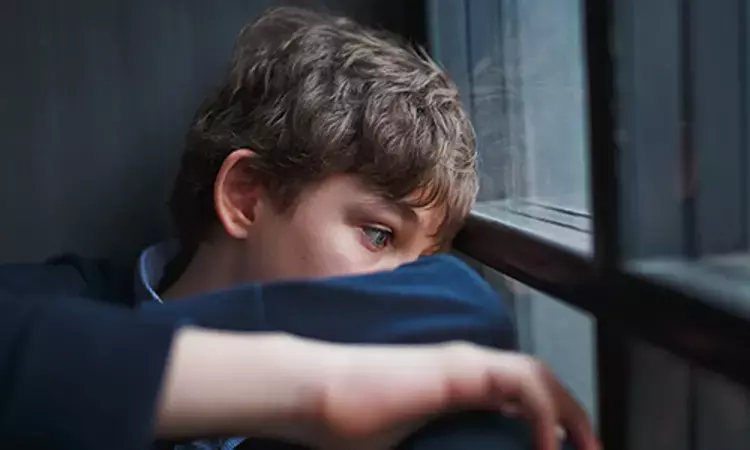- Home
- Medical news & Guidelines
- Anesthesiology
- Cardiology and CTVS
- Critical Care
- Dentistry
- Dermatology
- Diabetes and Endocrinology
- ENT
- Gastroenterology
- Medicine
- Nephrology
- Neurology
- Obstretics-Gynaecology
- Oncology
- Ophthalmology
- Orthopaedics
- Pediatrics-Neonatology
- Psychiatry
- Pulmonology
- Radiology
- Surgery
- Urology
- Laboratory Medicine
- Diet
- Nursing
- Paramedical
- Physiotherapy
- Health news
- Fact Check
- Bone Health Fact Check
- Brain Health Fact Check
- Cancer Related Fact Check
- Child Care Fact Check
- Dental and oral health fact check
- Diabetes and metabolic health fact check
- Diet and Nutrition Fact Check
- Eye and ENT Care Fact Check
- Fitness fact check
- Gut health fact check
- Heart health fact check
- Kidney health fact check
- Medical education fact check
- Men's health fact check
- Respiratory fact check
- Skin and hair care fact check
- Vaccine and Immunization fact check
- Women's health fact check
- AYUSH
- State News
- Andaman and Nicobar Islands
- Andhra Pradesh
- Arunachal Pradesh
- Assam
- Bihar
- Chandigarh
- Chattisgarh
- Dadra and Nagar Haveli
- Daman and Diu
- Delhi
- Goa
- Gujarat
- Haryana
- Himachal Pradesh
- Jammu & Kashmir
- Jharkhand
- Karnataka
- Kerala
- Ladakh
- Lakshadweep
- Madhya Pradesh
- Maharashtra
- Manipur
- Meghalaya
- Mizoram
- Nagaland
- Odisha
- Puducherry
- Punjab
- Rajasthan
- Sikkim
- Tamil Nadu
- Telangana
- Tripura
- Uttar Pradesh
- Uttrakhand
- West Bengal
- Medical Education
- Industry
COVID-19 pandemic driving more children towards anxiety, depression: Study

During the current ongoing COVID-19 pandemic, psychological problems like anxiety, depression, irritability, mood swings, inattention and sleep disturbance are fairly common among quarantined children. Also worsening of behavior was noted in children with pre-existing psychiatric disorders. Citing the importance of behavioral issues among children and their caregivers, Prateek et al performed systematic review of currently available literature on psychological problems in children during this pandemic.
Though COVID-19 infection causes mild symptoms in majority of children compared to adults, they are equally susceptible to psychological effects of pandemic and quarantine measures.
Children were noted to be fearful about infection of self and family members, dislike towards social distancing and quarantine measures, feeling isolated and anxious. Interrupted academics and uncertainty about future aggravates the psychological stress. With this background doctors from AIIMS and PGIMER decided to study and ascertain the impact of covid-19 on behavioral issues in children.
Prateek et al performed Systematic review and Meta-analyses of 15 good quality studies between December 2019 and 15 august 2020 about behaviour and psychological problems in children with previous normal mental health, children with pre-existing behavioral abnormalities and also caregivers who developed various psychological problems.
Major findings from this study were:
1. Both children and adolescents had significant anxiety, depression.
2. The most frequent problems encountered were fear, difficulty in concentration, irritability, boredom, feeling of loneliness, anger, sadness and increased reluctance, sleep disorders.
3. Higher exercise frequency was relatively protective against depression and anxiety.
4. Presence of prior behavioral comorbidities (ADHD and autism spectrum disorders) was associated with increase in intensity and frequency of symptoms.
5. Even the parents of children were noticed to have more sever anxiety and depressive symptoms compared with their counter-parts in non-pandemic period.
The schools being closed, children confined to home, restricted outdoor activities with their peers, increased screen time, all these were found to predispose a child to mental health issues. Adolescent children felt stressful about financial constraints, parents losing job during this pandemic. One interesting aspect is that smartphones and social media, which was previously despised by most parents, have now become the only media for entertainment, information and education for children.
Few steps to relieve stress of children are:
-Positive reinforcement and healthy emotional interactions among family members
-Judicious use of electronic and social media
-promotion of exercise and healthy eating though educational portals.
The results of the study also indicate the requirement for a structural stress management helpline for parents and secondary school students. Hence there is increasing need for child psychiatrists, psychologists, pediatricians and community health practitioners to join hands to help children with behavioral problems.
Source:
Panda PK, Gupta J, Chowdhury SR, Kumar R, Meena AK, Madaan P, Sharawat IK, Gulati S. Psychological and Behavioral Impact of Lockdown and Quarantine Measures for COVID-19 Pandemic on Children, Adolescents and Caregivers: A Systematic Review and Meta-Analysis. J Trop Pediatr. 2021 Jan 29;67(1):fmaa122. doi: 10.1093/tropej/fmaa122. PMID: 33367907; PMCID: PMC7798512.
Dr Kamal Kant Kohli-MBBS, DTCD- a chest specialist with more than 30 years of practice and a flair for writing clinical articles, Dr Kamal Kant Kohli joined Medical Dialogues as a Chief Editor of Medical News. Besides writing articles, as an editor, he proofreads and verifies all the medical content published on Medical Dialogues including those coming from journals, studies,medical conferences,guidelines etc. Email: drkohli@medicaldialogues.in. Contact no. 011-43720751


